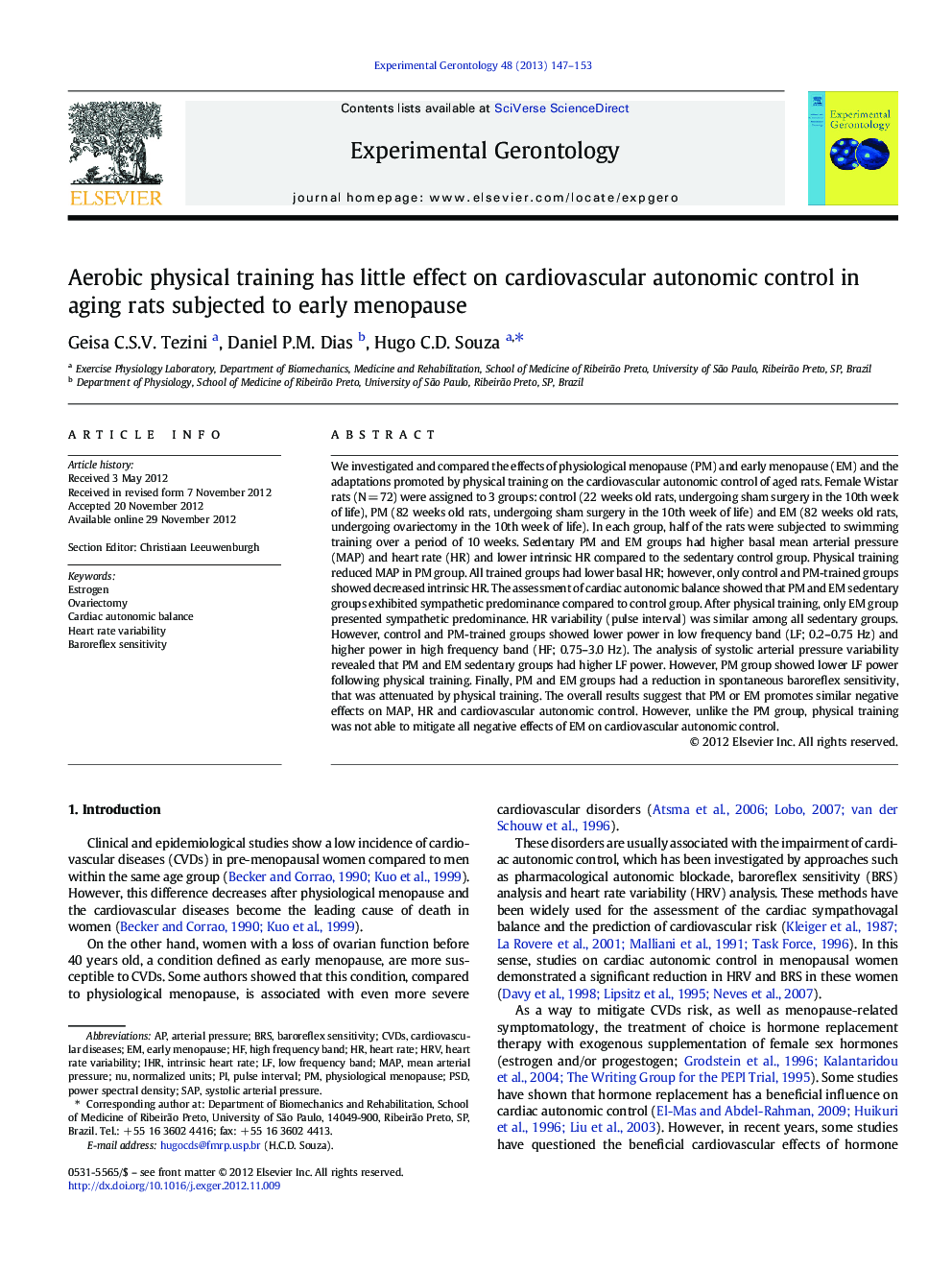| Article ID | Journal | Published Year | Pages | File Type |
|---|---|---|---|---|
| 1906375 | Experimental Gerontology | 2013 | 7 Pages |
We investigated and compared the effects of physiological menopause (PM) and early menopause (EM) and the adaptations promoted by physical training on the cardiovascular autonomic control of aged rats. Female Wistar rats (N = 72) were assigned to 3 groups: control (22 weeks old rats, undergoing sham surgery in the 10th week of life), PM (82 weeks old rats, undergoing sham surgery in the 10th week of life) and EM (82 weeks old rats, undergoing ovariectomy in the 10th week of life). In each group, half of the rats were subjected to swimming training over a period of 10 weeks. Sedentary PM and EM groups had higher basal mean arterial pressure (MAP) and heart rate (HR) and lower intrinsic HR compared to the sedentary control group. Physical training reduced MAP in PM group. All trained groups had lower basal HR; however, only control and PM-trained groups showed decreased intrinsic HR. The assessment of cardiac autonomic balance showed that PM and EM sedentary groups exhibited sympathetic predominance compared to control group. After physical training, only EM group presented sympathetic predominance. HR variability (pulse interval) was similar among all sedentary groups. However, control and PM-trained groups showed lower power in low frequency band (LF; 0.2–0.75 Hz) and higher power in high frequency band (HF; 0.75–3.0 Hz). The analysis of systolic arterial pressure variability revealed that PM and EM sedentary groups had higher LF power. However, PM group showed lower LF power following physical training. Finally, PM and EM groups had a reduction in spontaneous baroreflex sensitivity, that was attenuated by physical training. The overall results suggest that PM or EM promotes similar negative effects on MAP, HR and cardiovascular autonomic control. However, unlike the PM group, physical training was not able to mitigate all negative effects of EM on cardiovascular autonomic control.
► PM or EM promoted similar detrimental effect on autonomic parameters in aging rats. ► Physical training attenuated the negative effects of PM on all autonomic parameters. ► Physical training had few influence on negative autonomic effects of EM.
